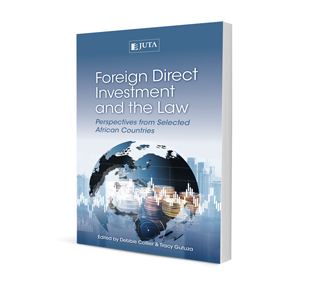Legal protection of property under the Protection of Investment Act 22 of 2015

Legal protection of property under the Protection of Investment Act 22 of 2015
Authors C Picker
ISSN: 1996-2088
Affiliations: After obtaining an LL.M. from the University of Cape Town in 2017, the author is currently pursuing a doctorate from Georg-August-Universität Göttingen, Germany
Source: Acta Juridica, 2018, p. 17 – 42
Abstract
Foreign direct investment (FDI) constitutes an important tool for generating capital inflow and economic growth and development, particularly in developing countries. The prevalent global mechanism for regulating and protecting is the bilateral investment treaty (BIT). After the apartheid era, and the associated economic isolation of South Africa, the country concluded numerous BITs, particularly with capital-exporting European countries. However, following an extensive review of its BITs in 2008, the South African government promulgated the Protection of Investment Act 22 of 2015 (PIA) in December 2015 to replace several of its BITs with national legislation.
This essay will show that the PIA constitutes a highly uncertain and vague legal framework for foreign investment, which is likely to decrease investor confidence. Particularly in regard to international law, the PIA provides a significantly narrower concept of expropriation and lacks sufficient provisions regarding the compulsory payment of compensation in the case of indirect expropriation. This essay concludes that the manner of practical implementation and application not only of the PIA but of all legislation related to foreign investment will be decisive in order to achieve a reasonable balance between the domestic public interest and policy space and foreign investors’ need for predictable and reliable investment protection. The government will have to show its dedication and commitment to the establishment of a balanced investment regime in order to maintain South Africa’s status as a foreign investment-friendly venue.
